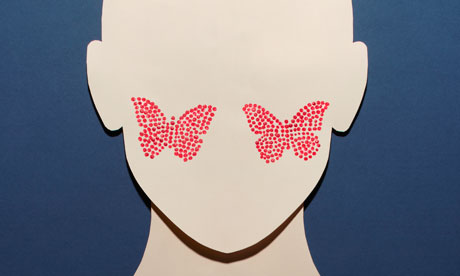
I'm a 38-year-old woman who is generally in good health, but I've been quite run down in the last few months after injuring my back. Since the summer, I've had a red rash on my right cheek and recently it started on the other cheek, too. Aloe vera, bio oil and Simple cream have had no effect.
You need to see your doctor. Possible diagnoses range from a reactive dermatitis from something you have put on your face – though it shouldn't have lasted – to acne or the "butterfly rash" of an illness called lupus erythematosus. The fact that you feel run down may be linked, and may not be due to your back injury. Do see your doctor, who will want to check on your general health and probably take blood tests to rule out any underlying illness. The fact that creams haven't worked tends to suggest that the rash is more than a superficial irritation.
I've always suffered from PMS, and it's got worse in the last year. I was a nightmare to live with for 10 days a month and my relationships and job suffered. Initially I was given a low-dose pill that I couldn't tolerate, so I was switched to a low-dose SSRI (10mg Citalopram). This has been successful, but for the last six months I have been lethargic and can't get enough sleep. As a consequence, I have put on a lot of weight. A friend has recommended acupuncture. Does this work? Are there any other treatments?
I'm concerned that your energy levels have changed in such a dramatic way in the last few months. Citalopram may not be the cause – it may just be a coincidence that the symptoms started after you began to take it. Insomnia is a side-effect of SSRIs, but you don't have difficulty sleeping – your problem is that a good sleep doesn't stop you feeling tired. So do see your doctor. You may need tests, to rule out thyroid problems, for example. Low thyroid function gives exactly your spectrum of symptoms, including weight gain. As for looking for other treatments, don't until you have had a health check. I don't know of any good controlled clinical trial evidence that acupuncture helps it in the long term, although anecdotes abound, of course.
• Do you have a question for Dr Smith? Email doctordoctor@theguardian.com

